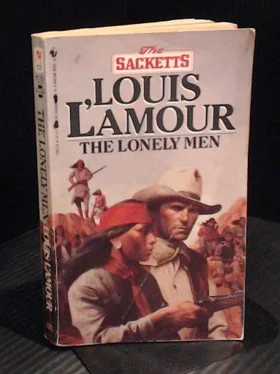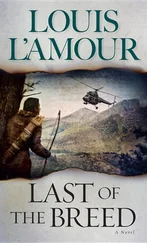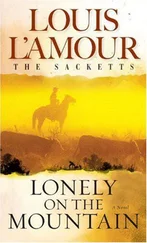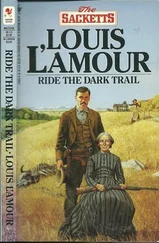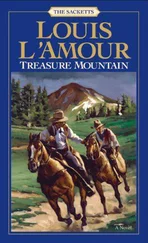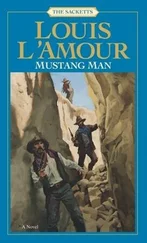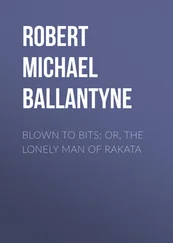Louis L'Amour - The Lonely Men
Здесь есть возможность читать онлайн «Louis L'Amour - The Lonely Men» весь текст электронной книги совершенно бесплатно (целиком полную версию без сокращений). В некоторых случаях можно слушать аудио, скачать через торрент в формате fb2 и присутствует краткое содержание. Жанр: Старинная литература, на английском языке. Описание произведения, (предисловие) а так же отзывы посетителей доступны на портале библиотеки ЛибКат.
- Название:The Lonely Men
- Автор:
- Жанр:
- Год:неизвестен
- ISBN:нет данных
- Рейтинг книги:4 / 5. Голосов: 1
-
Избранное:Добавить в избранное
- Отзывы:
-
Ваша оценка:
- 80
- 1
- 2
- 3
- 4
- 5
The Lonely Men: краткое содержание, описание и аннотация
Предлагаем к чтению аннотацию, описание, краткое содержание или предисловие (зависит от того, что написал сам автор книги «The Lonely Men»). Если вы не нашли необходимую информацию о книге — напишите в комментариях, мы постараемся отыскать её.
The Lonely Men — читать онлайн бесплатно полную книгу (весь текст) целиком
Ниже представлен текст книги, разбитый по страницам. Система сохранения места последней прочитанной страницы, позволяет с удобством читать онлайн бесплатно книгу «The Lonely Men», без необходимости каждый раз заново искать на чём Вы остановились. Поставьте закладку, и сможете в любой момент перейти на страницу, на которой закончили чтение.
Интервал:
Закладка:
The tall pine was a mile off, and we rode directly for it through the half-light of the early dawn. We covered that mile at a dead run, slowing to a trot as we neared the tree. I glanced around swiftly.
"How is it? Are we all here?" I asked.
"I was the last one," Battles said. "We all made it."
"Anybody hurt?"
"They burned my shoulder," Rocca said. "It is nothing."
So I led them away at a fast trot for a little way, then I ran the horses again for a good half-mile, slowed to a trot and then a walk, then ran them again.
At noon we drew up at a small seep that came from the base of a grass-covered dune. We watered our horses, exchanged saddles to fresh horses, and pushed on.
We kept a good pace, riding wide of any places of ambush, and watching for dust clouds. There were bandits as well as Indians to be feared, and there were soldiers, too, who might resent our being here. All this while the children did not cry, they did not once call out. The Apaches had taught them that, if nothing more.
At midafternoon we rode into a deserted village. The ruins of a large adobe still stood, and a half-completed church. There was water running in an irrigation ditch.
In a corner of one of the houses was a skeleton, still half-clothed, of a Mexican who had died fighting. The left arm of the skeleton showed a break that had mended badly, leaving the arm shorter and crooked.
Tampico looked at it then at the dried leather of the holster on which an initial had been carved. It was a large B.
"So this is where it happened, Benito," he said, and then glancing around at me, he said, "I knew him. He was a bad one, but brave."
We made coffee there, and a hot soup from the jerked beef, and some corn, potatoes, and onions found in the deserted fields, now gone to weeds. We ate quickly, but we ate well.
Spanish wiped his hands on his chaps and looked at me. "Let's be gettin' on," he said. "There's a smell of death about this place."
John J. Battles was already in his saddle, waiting. We mounted up and moved out, riding fresh horses again, so as to use none of them too hard.
It was hot and still in those late hours of the day, and the dust did not rise.
Suddenly Murphy indicated a place on the horizon where a blue-gray finger of smoke made a question mark against the mountains. It was ahead of us off to the east. We knew what it meant, and we pressed on, picking up the north star for guiding, following it as best we could, with what the terrain offered. After midnight we stopped among some willows and made dry camp in an arroyo.
Short of daybreak we were in the saddle again, and pushing on. We passed a village off to our right.
"Tres Alamos," Rocca said. Three Cottonwoods ... it was the name of many villages. Later we passed near another village, but avoided it, for there was no time for answering questions, and they would not like us bringing the Apaches on them. This was Senokipe -- hollow tree. I loved the names the country gave, the sound of them made music to the ear. Santa Rosalia ... Soledad ... Remedies ...
Soyopa ... Nacori ... Chimala ... Kiburi. Okitoa, a sparrow hawk's nest, Batuco, a waterhole, Cumuripa, a rathole ... Matape, the red cliff, and Bacadeguatzi, meaning "at the white mountain." The men who came first to this land used the names descriptive of it, the names that grew as naturally from the land as the cottonwood, the willow, or the ocotillo. Dawn came up in crimson light over the eastern mountains, it flushed the mountainsides with a kind of dull flame.
"I don't like it," Rocca muttered gloomily. "It looks like blood."
In the next hour we counted three smokes ... three and an answering smoke.
We stopped at a small creek, watered the horses, and shifted saddles.
"If anything goes wrong," I said to Dorset, "you take the children and ride for the border. Harry can handle his own horse and one of the youngsters."
Rocca turned in his saddle. "I can smell Apaches. They have been by this way, and not long since."
Murphy chuckled. "You're dreamin', boy. Nobody can smell that good."
"They have been here," Rocca insisted. "And they will come again."
Now that we were further north, the grass was sparser, there were bare sandhills, and the bare brown-red rock of the mountains was streaked with the white of quartz. The sun was hot two hours before noon. The air was still, nothing stirred anywhere. Dancing heat waves emphasized the dead quiet.
My skin crawled. Again and again I shifted my rifle to wipe the sweat from my hands. Sweat streaked the dust on the faces of my companions, and the sweat trickling down my spine was cold and clammy under the slight stir of wind. I tried to assay our chances and came up empty.
John J. Battles suddenly spoke. "I'd like to see the leaves turning red and gold again, and hear the wild geese honk."
"You're thinking of a northern land," Spanish Murphy said. "I remember a time like that in Wyomin'. I drove a herd east from Oregon."
Dorset edged close to me. "Tell," she said softly, "do you think we'll make it?"
I did not want to talk, it was a time for listening. "We've had luck so far," I answered.
We switched horses again and pushed on through the nooning time -- four bold but lonely men, a girl scarcely become a woman, and the youngsters, four of them.
With the spare horses, three per rider, and our pack horse, we made a solid bunch. Our other pack horse had long since been lost.
Somewhere, still far off to north of us, lay the border, a thin line drawn on maps, and a thin line in our consciousness, but a strong one across our lives.
North of it there might be help. And further north still there was sanctuary.
We slowed the horses to a walk. It was very hot. The sun was lost in a brassy sky.
I think we all knew that the Apaches would come. We could elude a few, but we could not elude them all. The Apache had no regard for horse flesh. He would ride a horse to death and then eat him, so he rode often at a killing pace. And there were the talking smokes, speaking across the distance.
I did not hate the Apache. He was my enemy as I was his because of the time and the circumstances, but he was a fighting man, and a strong man who endured much to live in this country. If they captured us they would kill us. There would be torture for the men, worse perhaps for the girl, but it was their way of life, and you judge each man by his time and his way of life.
We walked our horses while the saddles creaked, and we blinked our eyes to see past the sting of the salty sweat trickling into them. Dark stains showed on our shirts. We drank water from our canteens, and kept on.
We knew there was a waterhole ahead. Rocca knew where it lay, Spanish knew, and I knew. We thinned out as we rode nearer, and we cut for sign, but found none.
We could see a cottonwood up ahead, and a small clump of willows. Off to the east, fifty yards or more from the waterhole, rose a bare upthrust of rocks perhaps half a mile long, and not more than a hundred yards wide for most of its length.
Pulling up, I studied those rocks. "That waterhole now," I said. "If somebody was up in those rocks anybody at the waterhole would be a sitting duck."
"We got to have water," Murphy said.
Glancing around, I saw a separate small island of rocks rising perhaps from a buried spur of the ridge. "You folks hole up over younder," I said, "and I'll take three horses and the canteens and ride over there for water. You cover me.
If any shooting starts, you open up on the ridge over there. I'll water the horses, and fill the canteens."
Leading the horses, I rode to the waterhole. There was a desert wren singing in the willows, and the cotton-wood leaves were rustling, as they do in the slightest breeze. Some quail sifted away through the low brush as I approached, the horses quickening their pace as they neared the water.
Читать дальшеИнтервал:
Закладка:
Похожие книги на «The Lonely Men»
Представляем Вашему вниманию похожие книги на «The Lonely Men» списком для выбора. Мы отобрали схожую по названию и смыслу литературу в надежде предоставить читателям больше вариантов отыскать новые, интересные, ещё непрочитанные произведения.
Обсуждение, отзывы о книге «The Lonely Men» и просто собственные мнения читателей. Оставьте ваши комментарии, напишите, что Вы думаете о произведении, его смысле или главных героях. Укажите что конкретно понравилось, а что нет, и почему Вы так считаете.
